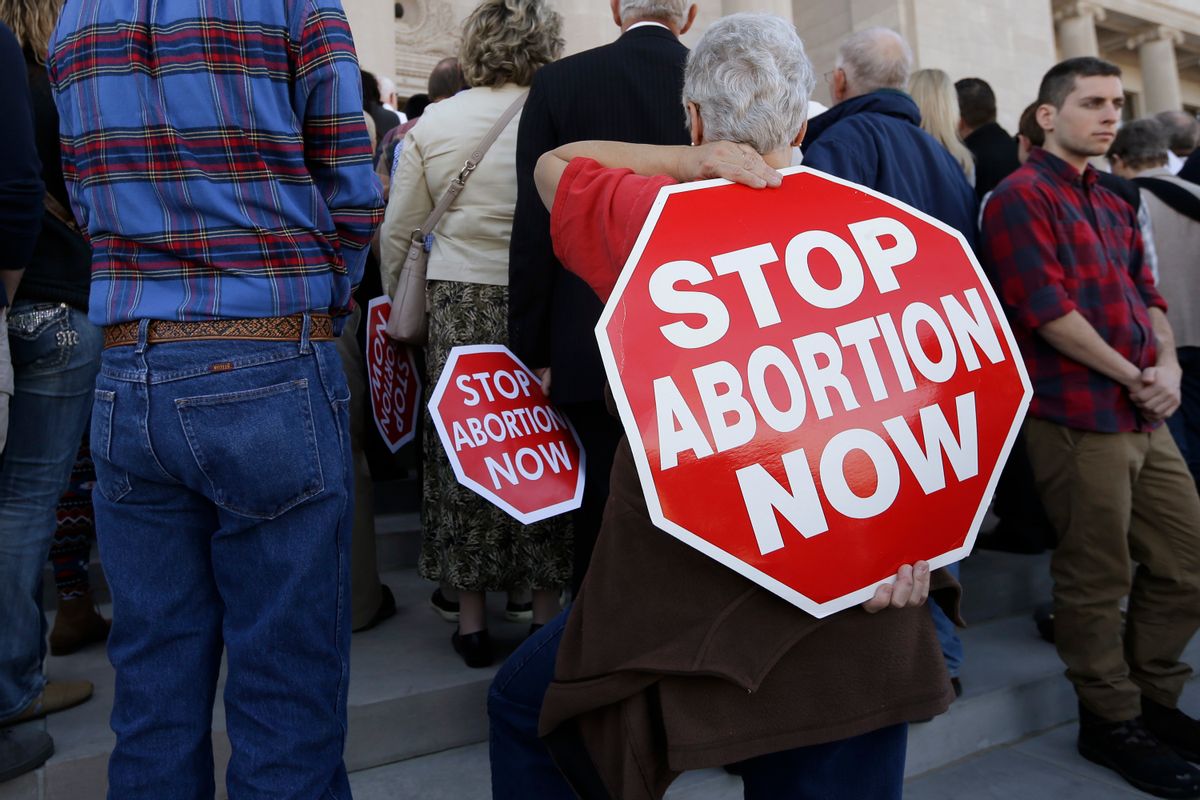Imitating the lack of concern for victims of rape and incest displayed in other southern states this legislative session, lawmakers in South Carolina have agreed to drop exemptions for survivors of such crimes from a controversial 20-week abortion ban. The bill, HB 3114, was introduced in December and included an exception only for the life of the pregnant person. After being tweaked, the measure is closer to its horrifying original form.
According to RH Reality Check, the bill would ban all abortions at 20 weeks post-fertilization, and is likely to be kept on hold until January:
After being passed by the GOP-dominated house, senators added exceptions for rape, incest, and fetal anomaly. But anti-choice lawmakers in the house rejected those amendments, leading to the convening of a committee to iron out the differences in the two versions.
After meeting Wednesday, [Democratic state Rep. Robert] Ridgeway, who sits on the committee, told RH Reality Check that it had decided to add exceptions only for fetal anomaly and not rape or incest. Ridgeway, a trained medical doctor, said that the fetal anomaly exception should be left on because it’s essentially a medical decision to be made by a doctor.
By contrast, rape and incest are “judicial” decisions, and so could be kept off of the bill, he said.
Other sticking points included a question about how to word the part of the bill that will outline physician liability. The bill’s original text included unique punishments created for physicians who performed abortions after 20 weeks, but the new bill will subject those physicians to general malpractice liability.
South Carolina state lawmakers are far from the only ones to introduce highly restrictive, dangerously narrow 20-week abortion bans: Just this year, a dozen other states introduced similar measures, and in May, the U.S. House of Representatives passed its own ban, which makes no exceptions for the health of the pregnant person or for fetal anomalies.

Shares